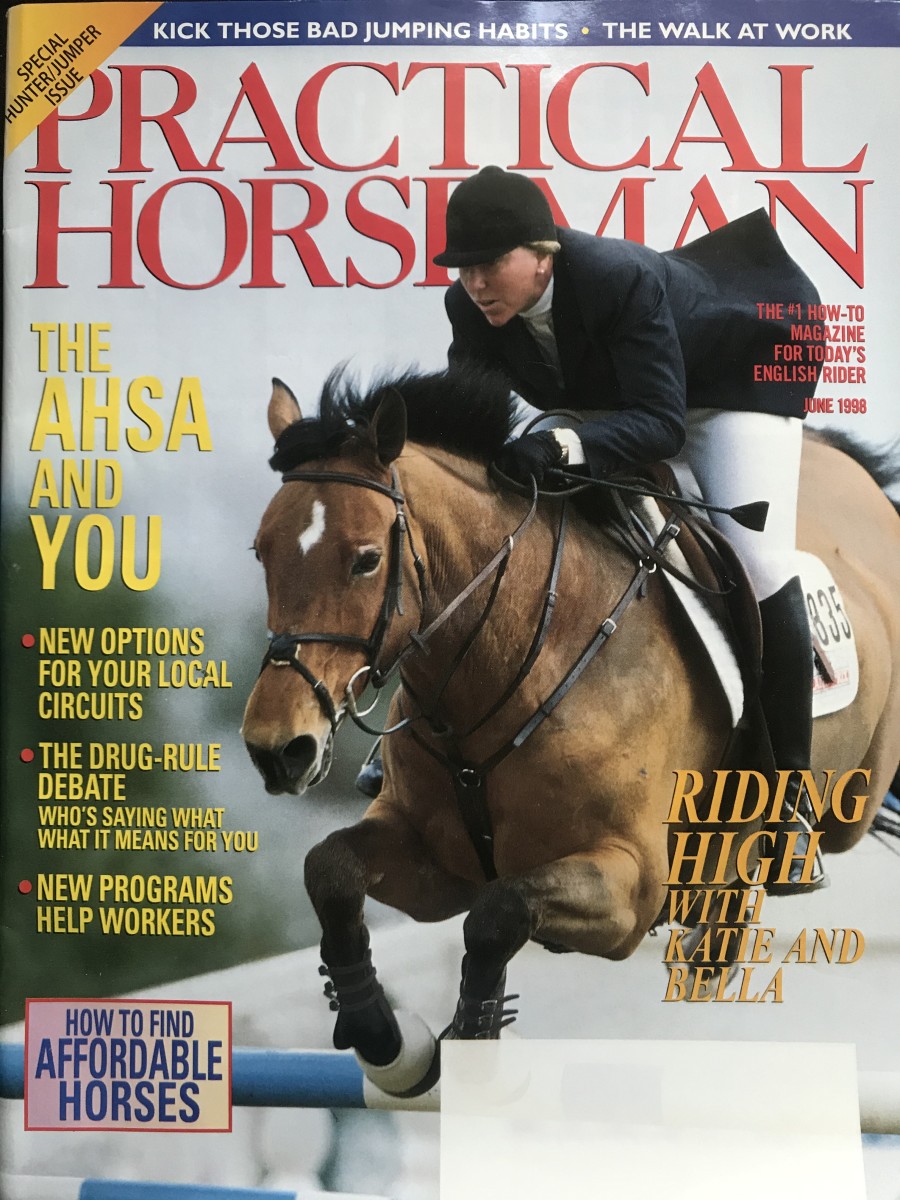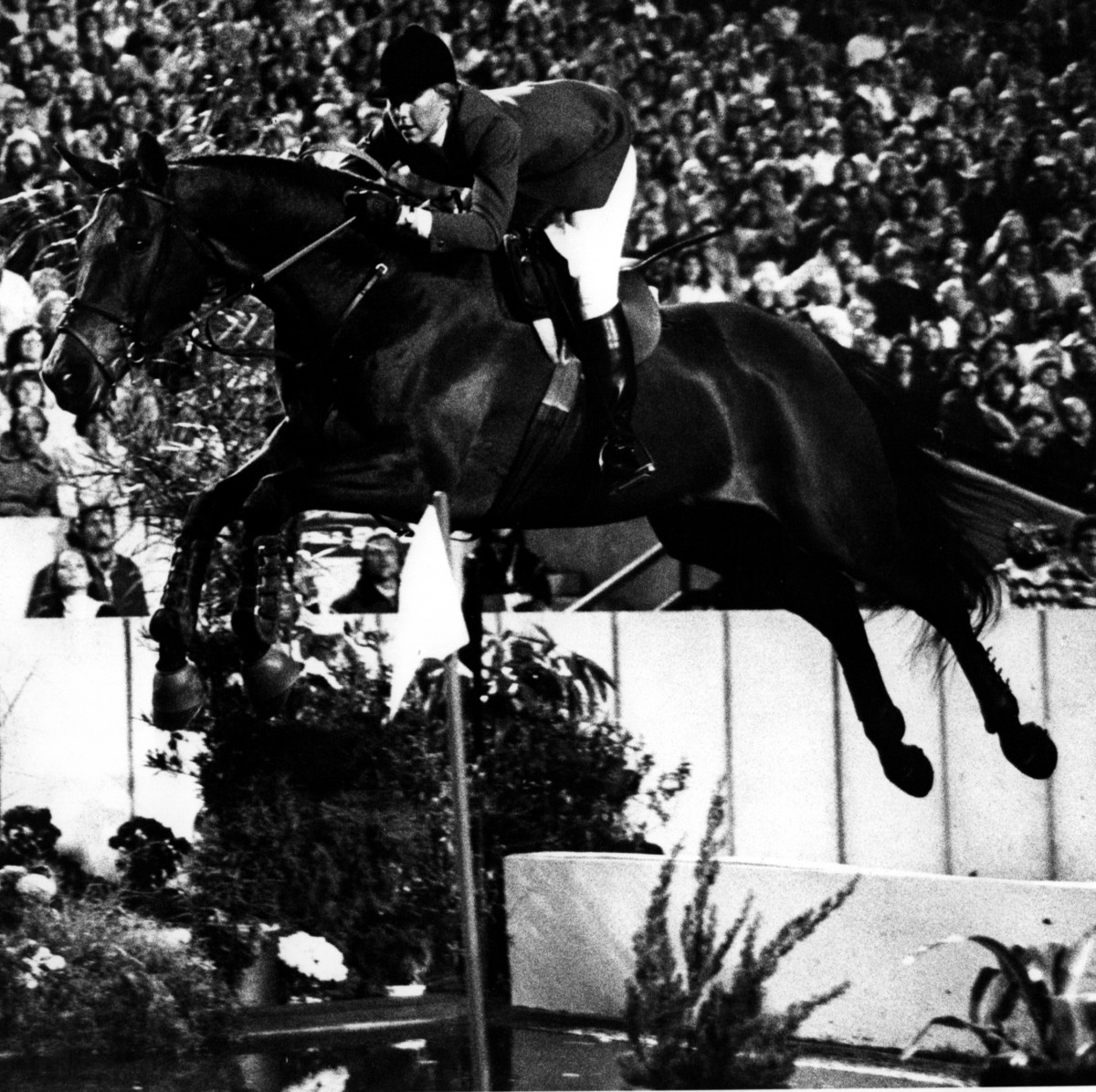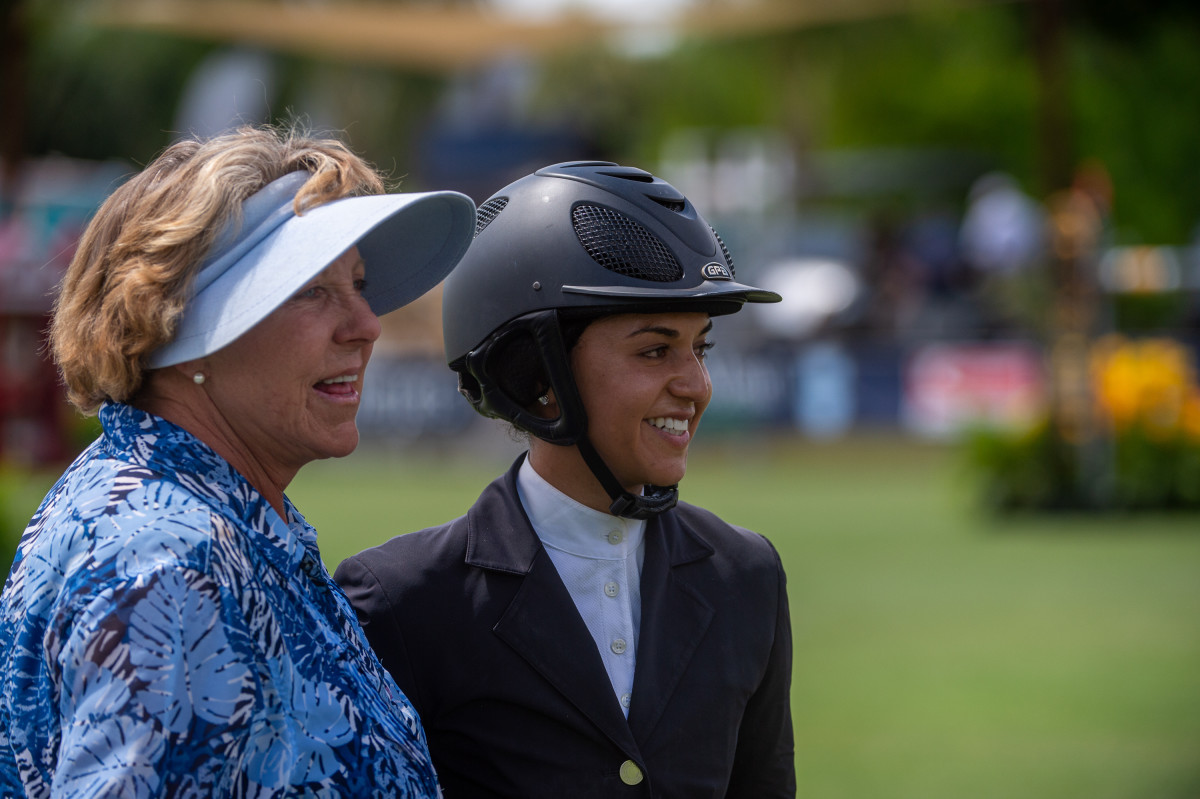Katie Monahan Prudent’s stellar career in the hunter/jumper world began as a Junior with wins in both the AHSA National Hunter Seat Medal Final and the ASPCA Maclay National Championship followed by multiple championships in the hunter ring before she emerged as an international jumper star. A member of the 1986 gold-medal World Championship show-jumping team, she has won almost every major grand prix in the United States and was named American Grand Prix Association Rider of the Year three times. In 2000, she was named Coach of the Year for developing riders by the U.S. Olympic Committee. She currently runs an international training program with her husband, French equestrian Henri Prudent and their son, Adam. They divide their time between Wellington, Middleburg, and France.

We spoke to Katie almost a year ago in Wellington, after working on a story and photo shoot for her feature story about understanding and controlling stride length on the approach to and between obstacles, which will appear in an upcoming issue of Practical Horseman.
During this conversation, Katie shared what she learned from competing in Europe, how she creates a bond with her horses, the importance of having a system, what she sees many riders struggling with and more.
You can listen to the full interview wherever get podcasts, but in the meantime, here is a snippet of the conversation.
Q: How did you first become involved with horses?
I remember from my earliest memory just wanting to be around horses. And my parents were not horsey at all—my father was an engineer, my mother was a housewife. Neither had ever ridden. They recognized at an early age that I was just passionate about horses. Now, where does that come from? I don’t know, maybe another lifetime. But it’s all I ever wanted to do and all I ever wanted to be, was someone with horses.

When I was five, we went to a little local stable and they leased a little Quarter Horse. I lived in the Chicago area and that horse was called Dinky. So I rode Dinky for a year and then I went to ride with Martha Jayne who was a maybe great grandmother now of some the Jaynes—Charlie Jayne, Alex Jayne—the Jaynes that are still in the horse business and very active. I rode with her and she had a school horse that was 16 years old. And she was a little Quarter Horse named Tina. And my parents bought Tina for me and Tina went on to be state champion and take me to Madison Square Garden and that was the beginning of it all.
Q: Is there any kind of success that stands out or is most meaningful to you?
When I first started Plain Bay Farm in Virginia, and that was around ‘78, I had always ridden for other people. Of course, by then I was really into wanting to do the highest level—the Olympics—but I had always ridden horses for other people where I wasn’t really responsible for the daily care or training. Then when I got my own farm, I said to myself, Well, if mistakes are going to be made, I need to be the one to make them so I can learn.

I went to two of my customers’ fathers, Mr. Inman and Mr. Sanford and I said I would like to go Europe and buy a horse, and if I put up a certain amount of money, will you match it so that I can get a grand prix horse. Of course in those days, the prices weren’t like they are now and they said they would. I went to Europe and I bought a horse called Noren and he was difficult. He had trotter blood in his background and he had a difficult mouth and as I’d be sailing to the big jump, if I had to steady him, he would break to a trot and would end up trotting the 6-foot oxer. So he was really a handful and really a fun horse for the owners because everybody was under their chairs all the time, could barely watch, it was so hair-raising. He was one of my biggest winners. I won the Invitational with him, I won the Derby, I won the President’s Cup. That moment in time when I was finally doing it by myself—I mean, I had a great team of people around me—but where I was making the decisions of the training and the schedule and the blacksmith and all the things you need to learn to make it go well, that was a very rewarding time.
Q: How do you create a bond with the horses you ride?
You have to love the horse. That has to be part of your psyche. To create a bond, I think you have to love the training and have an idea of what you want to achieve with that horse and then figure out how to make it happen.

Q: Could you talk about your training philosophy?
I think everything has to be a system and a system that you follow where you train most horses in the same way where they learn the same things like a kid going to school. They have to learn how to read and write and add and subtract, all horses have to learn that. And then at the same time you have to be a very good horseman and understand the physical apparatus of the horse and when you can push them and when you can’t, when they feel sore, how you keep them sound. What we have to remember always is the horse is athlete, we’re just the pilot. We’re just sitting in the driver’s seat.

See also: Two Releases for Jumping
Q: Are there certain common themes you see riders struggling with?
What I try to give to the students that I have now, is a feeling of being tough because I think in America, we’re getting softer and softer and I’ve said this before. It’s not any student’s fault, it’s the way America is—always blame somebody else for your problems, always find a way to make an excuse. I try to make my kids tough. I try to make them realize that if they want to succeed, they have to face every problem and work it out and do the best they can and not give up, not be a defeatist. I think it’s easy in today’s world to try to find excuses.

Listen to the full podcast here.
About the Practical Horseman Podcast
The Practical Horseman podcast features conversations with respected riders, industry leaders and horse-care experts to inform, educate and inspire. It is co-hosted by Practical Horseman editors. Find the podcast at iTunes, Stitcher and Soundcloud or wherever you get your podcasts.






